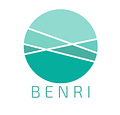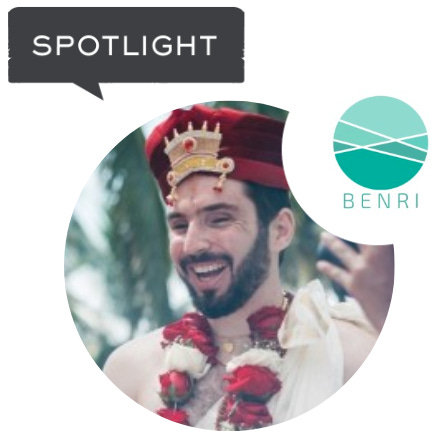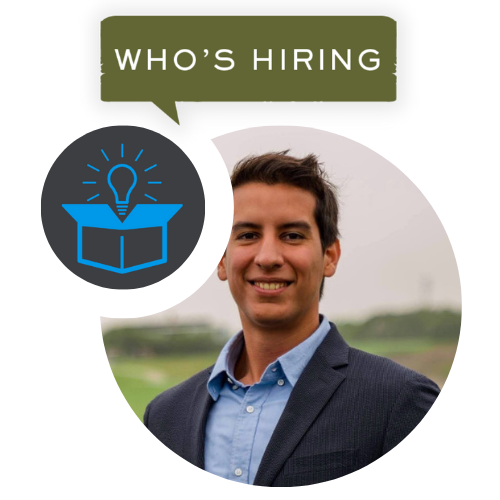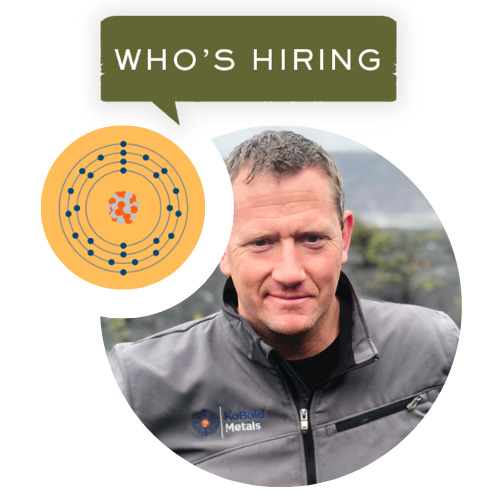⌛Issue #72: The Time For Decentralization
Claremont alumnus Andor Kesselman talks about working and building a company abroad and his new startup Benri - a decentralized identity and leverage platform built for enterprise.
💬 Welcome to issue #72 of Between the Lines
Good morning & happy Thursday. We hope you all had a fantastic holiday weekend and are refreshed and ready for the last sprint of the calendar year!
This week, Claremont alumnus Andor Kesselman dives into the decentralized identity space and how the cumbersome Visa process led him to build Benri. It’s a Claremont world out there. 👇
~ Josh & Miles
👤 Community Spotlight: Andor Kesselman
Andor Kesselman is a 2014 Claremont graduate. He was the founding engineer of Pathr.ai, a spatial analytics company that uses sensors from existing infrastructure and machine learning to understand how people move through space. Andor also helped co-author Roy-Kesselman Diagrams, a new mathematical approach related to topological graph theory. He is currently living in India with his wife while building his own bootstrapped startup, Benri, a decentralized identity platform built for enterprise.
After spending a few years building out the engineering team at spatial intelligence solution company Pathr.ai, you took a step back to start Benri. Can you tell us more about what Benri is doing and why it matters?
It started off with a simple desire to fix the visa process. Engineers get itches, and that was my itch. The whole process just struck me as something that was harder than it needed to be. Why does the spousal visa process take a year and a half? Why is it so hard for me to collate my documents together? Why do I keep on having to share the same information over and over again? But my question became more fundamental when I started to break down the inefficient process of the visa experience and other daily experiences, such as visiting my doctor.
Why is information sharing so hard, and why is sharing my digital identity so hard?
The concept here is, why can’t I just press a button and share the information that I want to share every time I need it? I should have complete control and access to all of my own data and be able to dish it out easily when I need to. This is where we started looking into leveraging “decentralized identity” to enable people and organizations better control over their PII data.
Decentralized identity is the concept that you own your data, not a central provider and that this decentral identity can be used for a lot of things. For example, imagine having a digitally verifiable driver’s license (in fact, that’s actually happening now). When your driver’s license is digitally verifiable, it opens up a lot of doors to things you can’t do with a physical copy, for example, selectively disclosing only the minimal required information to do something (i.e, proving you’re over 21 at a bar without showing your address ).
My co-founder and I were looking into this, and we realized that many of the data management problems we saw in our personal lives overlapped in the enterprise domain. We also realized that to efficiently tackle this visa problem and other consumer problems, we had to first tackle it from an enterprise level because that’s what will fuel the growth of consumers being able to take and use this data. Ultimately, we want to shift how identity moves across systems to be more secure for operations and IT while simultaneously creating a better user experience for people and enterprises trying to operate off that data. We want a future where visas take seconds, not weeks. The last thing I’ll say here is that Benri isn’t an identity platform — we consider ourselves a leverage platform. We’re expecting the identity ecosystem to mature over the next five years, and our goal is to be better at using it than anybody else in the ecosystem.
You’ve now been working on Benri for about a year, and the company recently came out of stealth. What’s coming down the shoot for Benri?
We’re now actively working with some R&D partners to build a product we will expand as we start to fine-grain that product. So, for the next one or two years, it’s basically making sure we have product market fit, making sure that the product can expand, and getting the traction we expect. And five years, our goal is to be the number one company in leveraging decentralized identity for your operations. So, if you’re an enterprise and you want to automate either something super simple or something complex across a number of contexts and systems, you’ll choose Benri to help you automate those processes and to accommodate some of these specifications.
We’re bootstrapping right now, and it’s just my co-founder and me. But, we’re actually just getting to the point where we’re starting to think about expanding our team and raising; we’re starting to find that there’s a lot of interest from some of our R&D partners to build a solution that’s going to be expansive. But for now, it’s been us, and it’s been a blast starting things up. The real road starts now. As we begin to get customers live, that’s when it starts to get harder.👇
💼 Who’s Hiring?: GoSchoolBox & Kobold Metals
GoSchoolBox, co-founded by Claremont alumnus and CTO Alejandro Mendoza, provides a private platform for school districts to extract insights about the academic impact of their educational service providers. GSB directly supports tutoring companies with a management platform to start or scale their businesses to service school districts. Today, GoSchoolBox's platform facilitates online and in-person tutoring, streamlines tedious tasks, integrates with other systems, and tracks outcomes and engagement for over 500,000 learners, tutors, and administrators managing their programs. They're looking to fill several senior roles in their product and customer success departments:
Claremont alumnus Kurt House is the co-founder and CEO of Kobold Metals – a rapidly growing start-up using AI to enable the transition to electrification and help solve climate change. Kobold is backed by Bill Gates's Breakthrough Energy Ventures, a16z, Bond Capital, Sam Altman, and others. Just recently, a16z included Kobold Metals in their American Dynamism 50 list, which spotlights tech companies that are kickstarting American renewal:
Check out the other ~5,000 open jobs at 400+ Claremont-affiliated companies here on our Storyboard. Plus, create a profile and enter your preferences to get alerted to new job postings relevant to you, be they the 1,000+ remote jobs, 100+ internships, or 40+ part-time positions available. We’ve published research that shows that Claremont-founded companies that disproportionately hire Claremont talent outperform — so pay attention, Claremonsters!
If any of these roles catch your eye 👀 , apply and mention Between the Lines. Or, if you are an employer looking to hire tip-top Claremont talent, fill out this form to have your jobs featured.
🗣️ Conversations on the Interwebz:
This week’s Claremont financing 💸
Congratulations to Claremont alumnus and co-founder Josh Lewis and Sensible on their successful $6.5M Seed round led by Craft Ventures. Sensible is building the future of software-defined workflows by adding structure to unstructured data and making data accessing in documents as easy as calling an API.


This week’s top listens 🎧
In this episode of the Startup of You podcast, Claremont alumnus Ben Casnocha and Greylock Partner Reid Hoffman talked about the skills and techniques needed to tap into the collective know-how of your network and make better overall decisions in business and life. Ben is a partner and co-founder of the early-stage venture firm Village Global.
Claremont Professor Paul Zak recently joined the Future of Storytelling podcast to discuss the importance of storytelling in capturing the connection with your audience's brains. Paul co-founded Immersion Neuroscience – a real-time software platform that predicts what motivates the user's audience to act. He is also the author of the Amazon bestseller, Immersion.

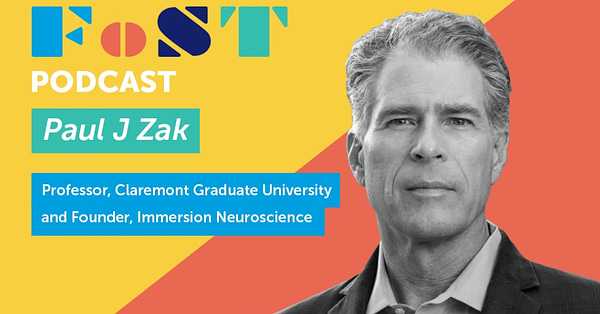
Everything else you need to know💡
Congratulations to Claremont graduate and Founder Joy Bhosai and her company Pluto Health for winning the Innovator Award at this year’s CNS Summit. Joy took the stage to share how Pluto Health improves patient access and care through real-world data.

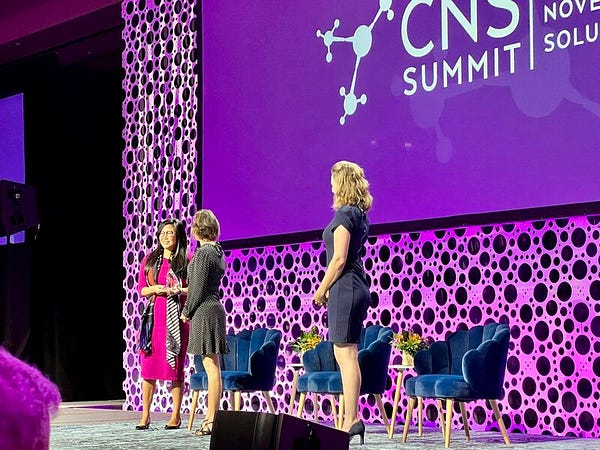
Can’t get enough of Between the Lines? Follow and connect with us on Twitter!
🍽️ BTL Snacks:
🛠️ Building An API Portal The Right Way….. Companies have been getting by for years with substandard developer experiences, but that is finally changing. Claremont alumnus and Speakeasy Co-founder & CEO Sagar Batchu shares Speakeay’s complete guide on building a proper API DevEx Portal. He discusses why API portals are needed, what tooling your API portals need, and how to get to best-in-class. Speakeasy is building its developer-first API platform with usability, composability, and extensibility as the guiding principles.
🤖 A Decade Of AI Funding….. Crunchbase recently shared part one of a series exploring the impact of AI startups on multiple sectors. The industry is booming — funding to companies using AI has increased from $3B and <1,000 deals in 2013 to $69B across >4,000 deals in 2021. Driverless auto company Cruise, founded by Claremont grad Daniel Kan, was second on the list of most highly valued AI companies at $30B, with Databricks and Grammarly coming in first and third, respectively.
💊 Don’t Forget Your Vitamins…. With their Seed round a few months ago, Claremont graduate Maya Kale and her sister & co-founder, Mili Kale, sat down with Tatler to talk about the founding story of their company, Moom Health. Moom is a Singapore-based healthtech firm that provides women with a slew of natural supplements that target reproductive health, gut health, sleep, stress, and more. They also share their journey to the wellness industry from different career backgrounds.
Feedback? We love to hear it. Hit us with an email. 👊🏼


